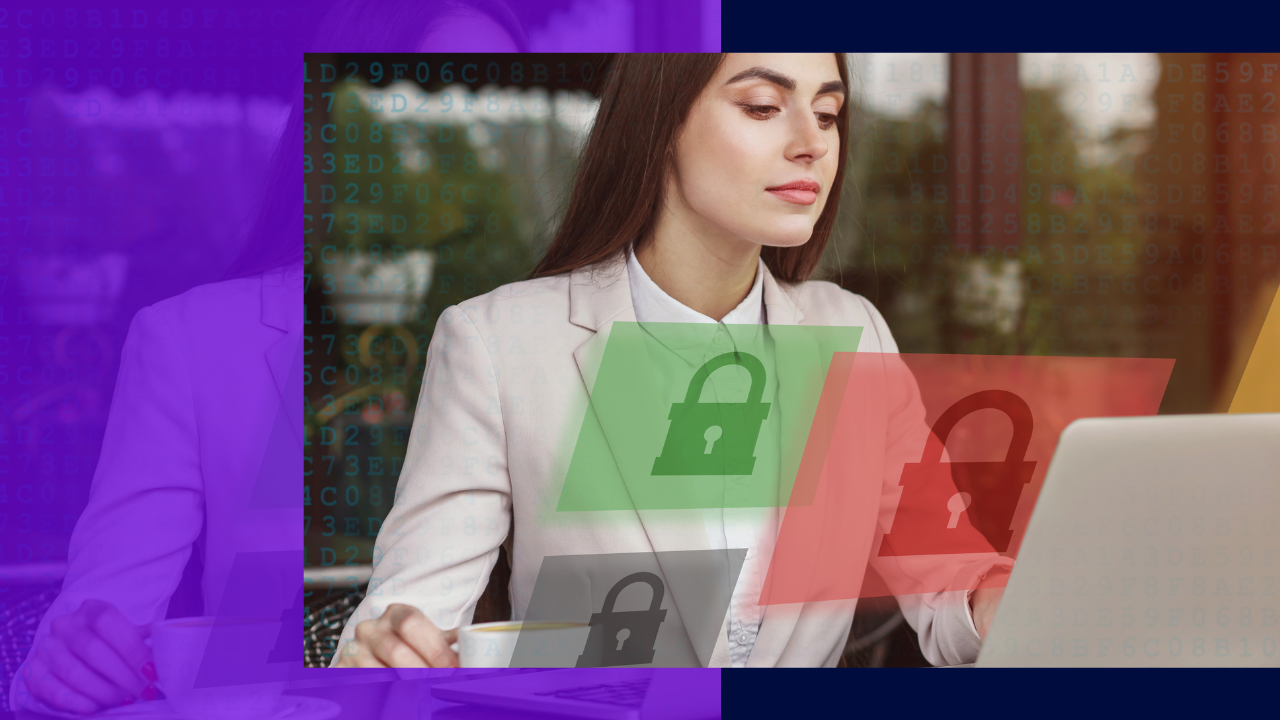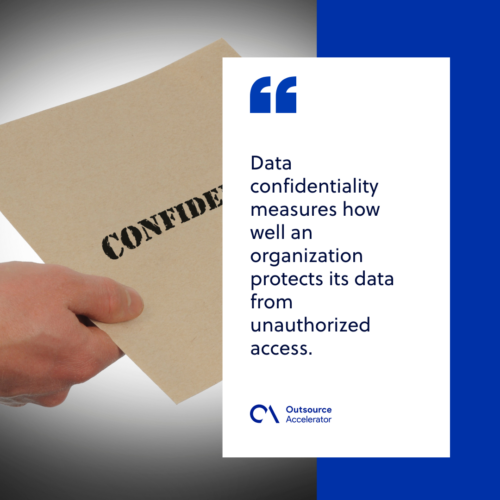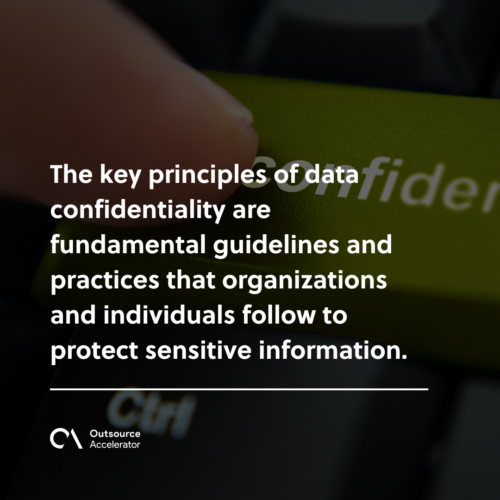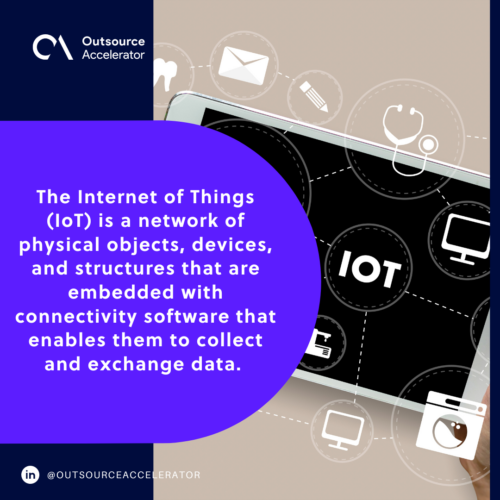Data confidentiality explained: Privacy in a digital world

As the world becomes increasingly digital, data breaches and cyber attacks are becoming more common. This makes data confidentiality a major concern for organizations of all types and sizes.
With sensitive personal and financial information at stake, losing data can lead to reputational damage and have a significant financial impact.
In this article, we’ll dive into the importance of data confidentiality and examine the risks of not safeguarding your data. We’ll also discuss the key principles to protect the confidentiality of sensitive data.
What does data confidentiality mean?
Data confidentiality measures how well an organization protects its data from unauthorized access. Data confidentiality is often tied to privacy issues.
Data confidentiality is a key requirement for every organization that handles data. It’s essential for maintaining trust and confidence between the organization and its customers.
It’s an important aspect of information security, ensuring that only authorized persons can access the information needed to perform their job tasks.

Key principles for data confidentiality:
The key principles of data confidentiality are fundamental guidelines and practices that organizations and individuals follow to protect sensitive information.
The following play a crucial role in safeguarding data from unauthorized access, disclosure, or theft:
Access control
Users should be able to access only the information they need and nothing beyond their job requirements.
You must have a well-defined access control policy in place for all employees. This policy should clearly define their roles and responsibilities, so you know exactly what they’re permitted to do on your systems.
Encryption
Encryption transforms original data into a form that cannot be easily understood. It can be applied to a wide range of technologies, including:
- Databases
- Mobile devices
- Virtual machines
A secret key, called a cipher, is used to encrypt data for data confidentiality.
Physical security
Data centers and servers should be located in secure facilities. These facilities should have physical security measures in place to prevent unauthorized access by wrongful personnel.
This data confidentiality principle uses physical barriers like walls, fences, and locked doors. Physical security is oftentimes the first line of defense when protecting data.
Employee training and awareness
Employee training is critical to ensuring that your staff understands the importance of protecting confidential or proprietary information from unauthorized use. Training can include anything from email reminders about security policies to more formal sessions on computer hygiene.
Everyone in the organization should be aware of how they can secure company data. Training should also include steps that employees can take to protect themselves.
Incident response planning
Incident response planning involves preparation for detecting and responding to computer security and data confidentiality incidents.
Your plan should outline how your organization will manage an incident. This includes who needs to be notified, what actions need to be taken, and what resources are needed. You may also include a list of contacts for outside experts who can assist with the investigation.
Once your plan is ready, you should test it. This will let you know if your system actually works as intended.

Common threats to data confidentiality
Data confidentiality faces various threats that put sensitive information at risk of unauthorized access, disclosure, or theft. These threats can have severe consequences for individuals and organizations.
Some common threats to data confidentiality include:
Cyberattacks
Cyberattacks are among the biggest threats to data confidentiality. These cover any attempts to gain access to confidential data or disrupt the systems that hold them.
Hackers and cyber terrorists are usually responsible for cyberattacks. They frequently use malware to gain access to sensitive information, which can then be used for identity theft or blackmail.
Data breaches
Data breaches are another major threat to data confidentiality. They expose businesses to financial loss, brand damage, and government investigation risks.
Data breaches can also have an impact on consumer trust. This is especially true when they involve private information like credit card details or medical records.
There has been a significant increase in regulatory activity worldwide aimed at protecting consumer privacy. This is due to the increased awareness of the risks of data breaches.
Unintentional data exposure
This threat involves the unintentional sharing of confidential information. There are many ways that data can be exposed unintentionally, including:
- Leaving a laptop unattended
- Unsecured Wi-Fi networks
- Lack of encryption on confidential files
- Inappropriate sharing of passwords among employees
Physical theft
Physical theft is the most obvious threat to data confidentiality. If you have no control over the physical environment where your data is stored, it’s very easy for someone else to walk away with your information.
This is a significant threat because it can result in permanent data loss if backup copies do not exist or cannot be restored quickly enough.
Internet of Things vulnerabilities
The Internet of Things (IoT) is a network of physical objects, devices, and structures that are embedded with connectivity software that enables them to collect and exchange data.
Because the IoT is still in its infancy, many devices are often not secured properly and can be easily hacked. If a hacker finds a vulnerability on one device, they could gain control over the entire system.

Significance of data confidentiality
Data confidentiality’s significance extends to individuals, businesses, governments, and society as a whole. Here are the key reasons why data confidentiality is important:
Protecting privacy
Data confidentiality ensures that people’s personal information remains private and secure.
This includes sensitive data like:
- Social security numbers
- Financial details
- Health records
- Other personally identifiable information
Preserving privacy is essential for maintaining individual autonomy, dignity, and personal safety.
Safeguarding intellectual property
Data confidentiality is essential for protecting valuable intellectual property.
The intellectual property of a company may consist of:
- Trade secrets
- Proprietary algorithms
- Research data
Maintaining the confidentiality of intellectual property is crucial for businesses to keep a competitive edge and drive innovation.
Compliance with regulations
Many countries have strict data protection regulations. The most famous is the General Data Protection Regulation (GDPR) in Europe, but various data privacy laws exist in different regions.
Adhering to these regulations is essential for organizations to avoid legal penalties and reputational damage.
National security and public trust
Governments handle vast amounts of data, including classified information related to national security and citizen records. Data confidentiality is crucial for protecting national interests, maintaining public trust, and preventing espionage.
Research integrity
Finally, data confidentiality preserves the integrity of research findings and protects the privacy of research participants. Proper data confidentiality encourages open collaboration and data sharing within the research community.







 Independent
Independent




